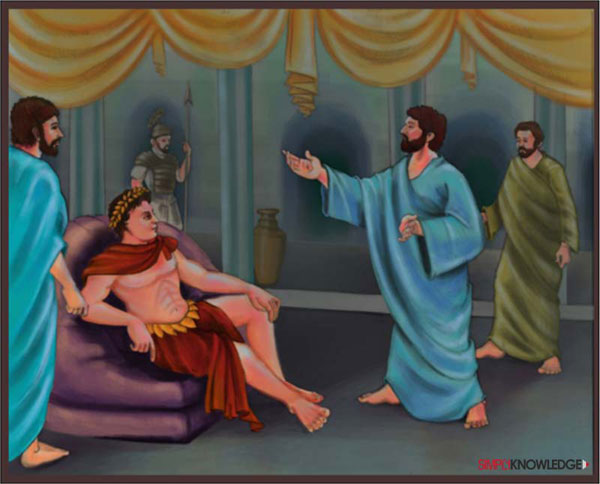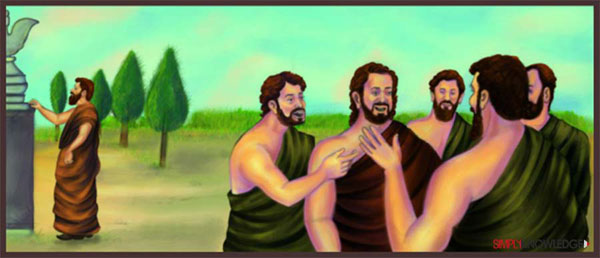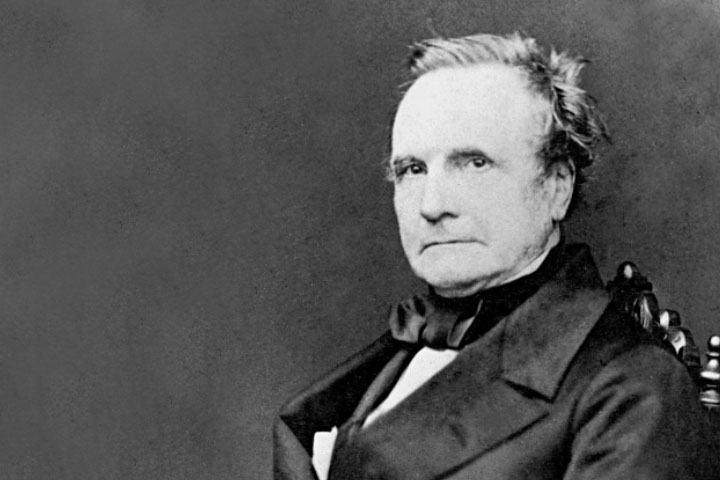

“Do you not think it a matter worthy of lamentation that when there is such a vast multitude of them, we have not yet conquered one?” exclaimed Macedonian emperor, Alexander the Great, to his courtiers. The reason, an ancient thinker called Anaxarchus, had just informed the monarch, several more worlds other than the Earth existed. Hence, Alexander’s dreams to conquer and rule the planet were at best, futile.
Anaxarchus was a sycophant of Alexander the Great and accompanied the Macedonian emperor on his conquest of India, along with Pyrrho. The two minions, who passed as thinkers, leapt at every opportunity to please Alexander.
While in India, Anaxarchus discussed his views on the world with Indian thinkers, who rebuked the duo for their farcical attitude towards life and human thought, saying the Earth was not the only world - in reference to the Hindu concept of an infinite universe and at least three worlds.
This confutation by Indian thinkers led Pyrrho to relinquish interest in material pleasures and seek ethereal answers about the human life and thought.
Anaxarchus however went ahead with his pursuits, culminating in a unique blend of thoughts based on Scepticism and Atomism.


Renowned ancient Greek historian and chronicler, Diogenes Laertius and a later counterpart, Sextus Empiricus, despite their best efforts, were unable to piece together the life of Anaxarchus. The two historians agree that Anaxarchus was born in Abdera, sometime around 380BC and studied under Democritus of Abdera, also called the ‘Laughing Thinker’ because of the constant smirk on his face and alacritous reviling of all accepted customs and traditions, combined with a fondness for luxury.

Scant information about Anaxarchus’ life exists, except that he was overtly fond of luxuries and would go any lengths to acquire whatever he desired, regardless of self respect. He was disliked for his obsequious behaviour, and shunned by many for his unctuous guile, which pleased Alexander the Great, who had turned into a megalomaniac due to his military successes and considered himself as god.


Due to his fetish for luxury, generals and courtiers of Alexander the Great wove several anecdotes about Anaxarchus, drawing a simile between the self-styled thinker and a dog fawning over his master. Ancient historians are therefore at loss to determine the exact nature of Anaxarchus- either as a snivelling, grovelling lackey or a genuine genius. He was often the subject of mockery and gossip within Alexander’s clique and several ignominious titles were attributed to Anaxarchus.
His greed and personal ambition for wealth were a far cry from the thoughts he expounded, though he did make a few valuable contributions to psychology.


Though no clear records exist about how Anaxarchus died, a legend claims, he was condemned to a grisly death by Niceron, a Cypriot tyrant. Anaxarchus was said to have been passive to the pain inflicted upon him, living his teachings of being happy in all trials and tribulations.

Several pugnacious debates about the veracity of Anaxarchus’ works exist, since few of them have survived, mostly in fragments, leaving historians with a conundrum about his actual psychological thoughts and fables spun by foes.

Anaxarchus is claimed to have stated that humans are similar to madmen, living in a world of self-deception- an analogy used to date, especially to define victims of drug and alcohol abuse, who hallucinate and lose touch of reality.
Anaxarchus also defined contentment as a state of mind wherein an individual is impassive about material possessions or occurrences, in stark contrast with his desire for luxuries as a crony of Alexander the Great. He preached, all humans perceive things and phenomenon differently, without understanding they are mere illusions. In brief, he believed, all individuals are dreamers living an untrue life.

The teachings of Anaxarchus about ethics are rather contradictory to accepted belief. While he did not actively condemn accepted traditions and propriety, he believed, humans could interpret them differently under various circumstances, to attain happiness. A legend states that Alexander the Great, enraged by some disagreement after a bout of drinking with his friend Clitus, slew him with a spear and later, lamented his action for killing his innocent ally.
Unfazed by the death of a dear friend of the emperor, Anaxarchus is claimed to have said to Alexander: “Here is Alexander, admired by the world. And yet the great emperor behaves like a slave, worried about petty people and their gossip, fearing the law as though he were a commoner. And here is Alexander who conquered the world and yet looks upon worthless men as epitomes of justice. The Great God Zeus, the God of Justice has blessed you with his divine presence so that whatever you do is divinely blessed in order that the world may know law and justice as he has willed. ”
Whether such a conversation actually occurred between Alexander the Great and Anaxarchus is debatable but it aptly insinuates the skilful palaver of the thinker whose sole objective was to gain royal favours and luxuries.
Next Biography











